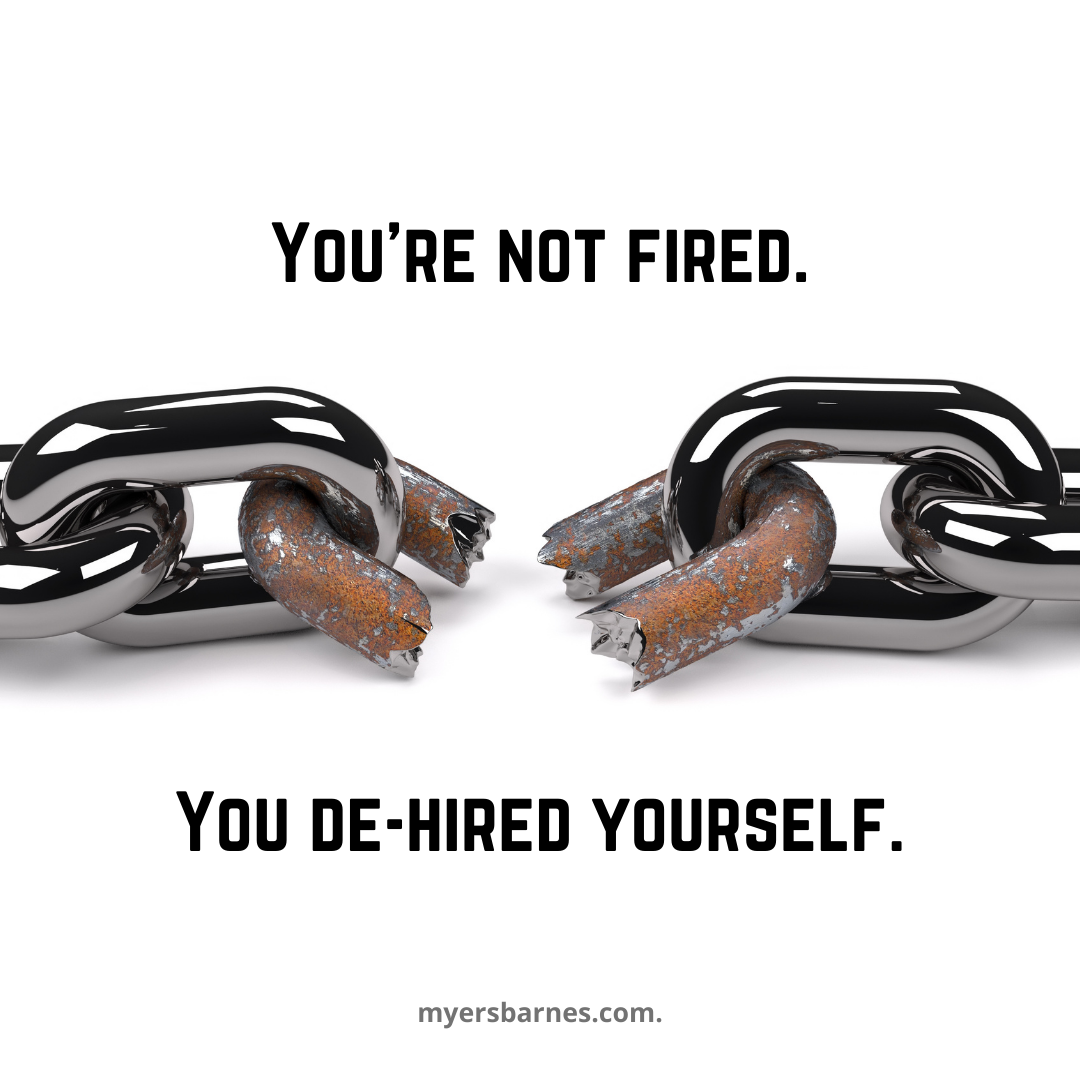 “I’m afraid we’re going to have to let you go.”
“I’m afraid we’re going to have to let you go.”
If you’ve ever been on either side of this conversation, you know that it’s a terrible experience. There are many reasons for terminating an employee. For those instances when you are let go “for cause”, here’s what you should know: You weren’t fired. You de-hired yourself.
This concept of “firing” dates back to medieval times. When someone in a community was deemed to be unacceptable, that person’s hut was burned down, forcing them out. When you’re about to extinguish someone from your team, you might be struggling with immense guilt. I want you to consider a different perspective.
Think about why you are firing this employee. Did they prove to be incapable of performing the duties they were hired to do? Have they been a toxic distraction in the team? If that’s the case, it’s the employee who made the decision to be de-hired. You simply finalized it.
Whether you tell them the decision is downsizing, a layoff, or outright firing, the result is the same: someone is out of work. And while the terminated employee clearly suffers the greatest loss, it is the manager who has to deal with the tough decision and its consequences
Now, if you look at the behavioral economics of management, firing is, in truth, de-hiring. And this action is the result of the employee’s actions (or lack thereof). I do not fire anyone. I let them de-hire themselves. If an employee is late every day or unwilling to actively prospect for leads, I believe that person has made a choice not to comply with the clearcut requirements of the job. With this action, he has chosen to de-hire himself. I merely affirm that decision.
When the termination time comes, I explain, “You’re a wonderful person. I’m not judging you on your character, but rather the fact that you have clearly decided not to comply with the needs of this position. So, do you want to change that behavior or de-hire yourself? The choice is yours.”
With this simple statement, I remove any guilt on my part and reaffirm the employee’s responsibility. Behavioral Economics 101: It’s business, not personal.
You can’t afford to pay for people who are not contributing to your success. It doesn’t matter that new home sales continue to be red hot. When the housing market shifts and sales are harder to come by, you’ll need powerful people on your team. A subpar performer in your ranks is taking up the spot where you could have a superstar. Think about the difference in revenue generation between a mediocre new home salesperson and an outstanding one. How many sales per month do you figure you’re losing by holding onto someone who just doesn’t care enough to be better?
Burn the hut and let them move on where they might be a better fit. In the end, it’s best for both sides.


